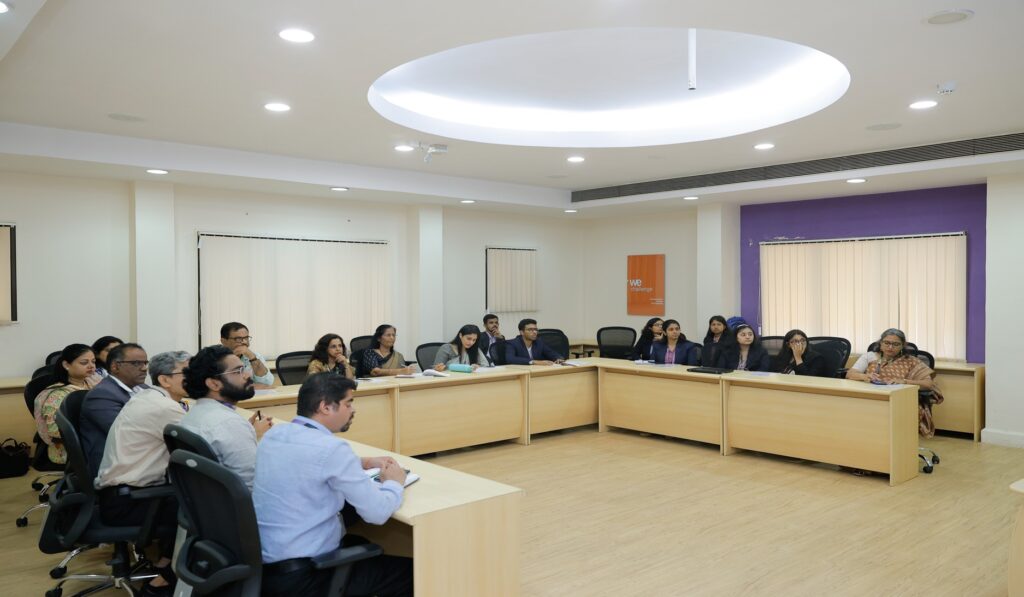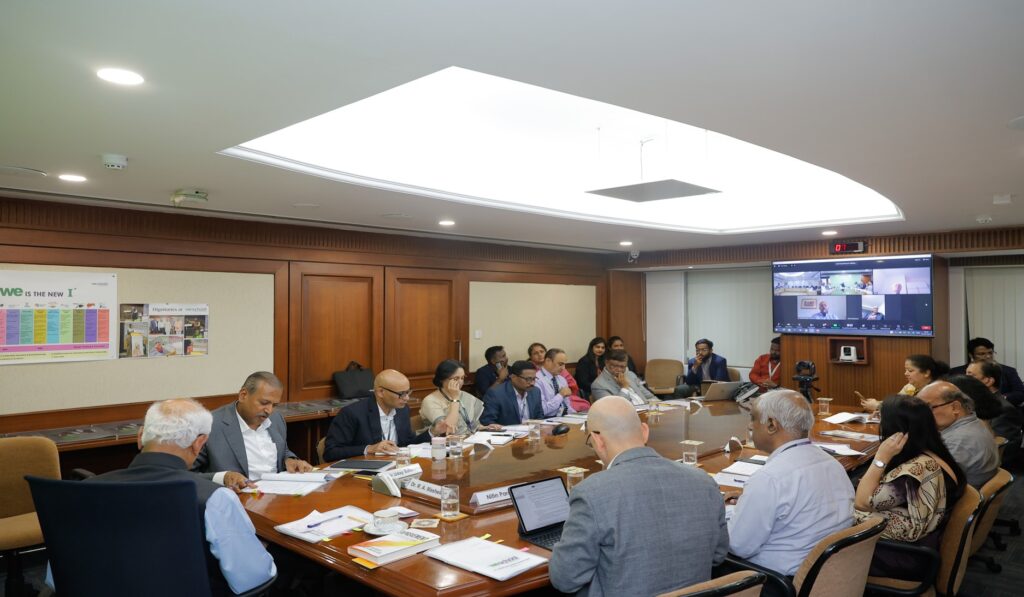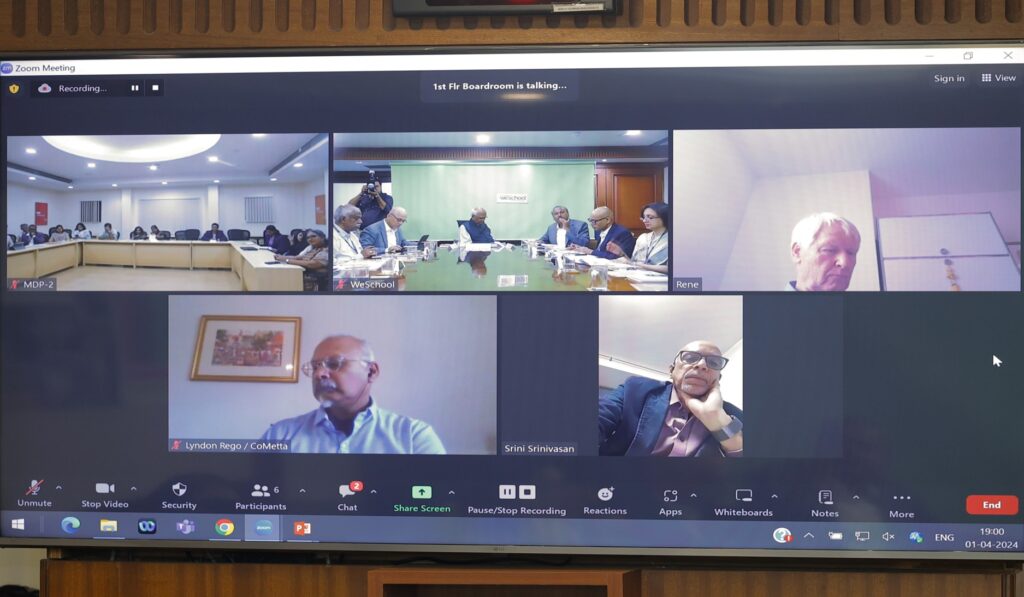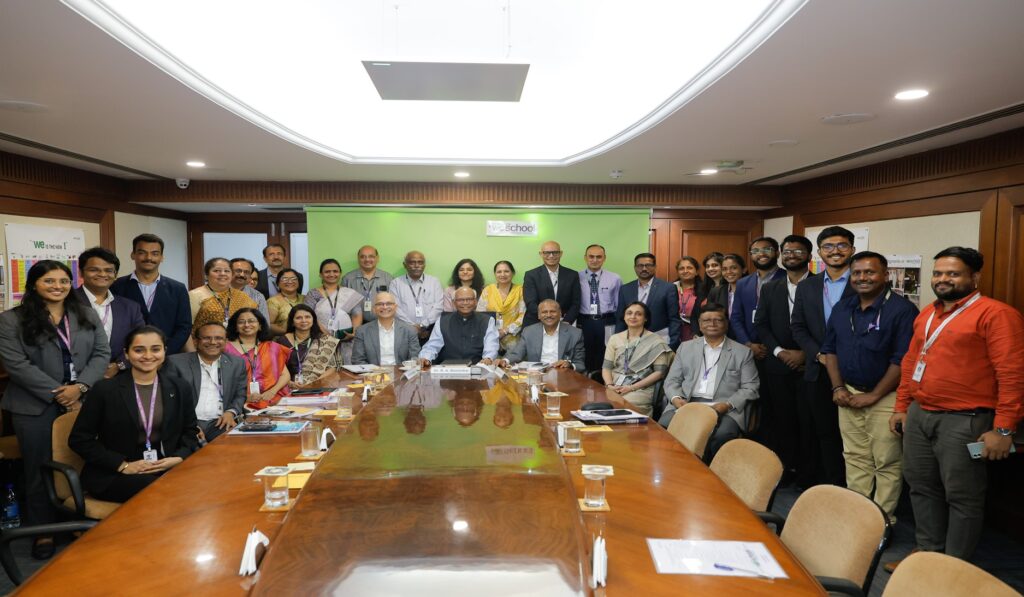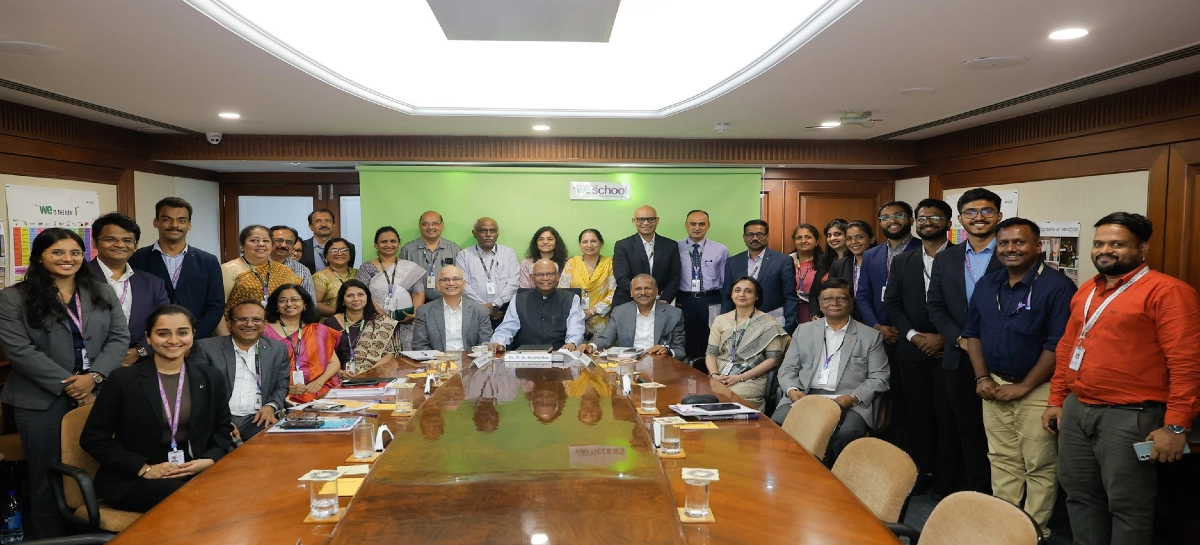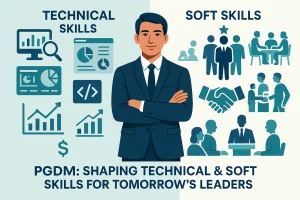Objective of the event
Agenda for the Meeting inviting inputs of the board members on.
1. How may we inculcate Exponential Thinking among our faculty and students.
2. How may we get faculty and students to intuitively grasp the changing essence of industries e.g. “A bank today is no longer a bank but an IT company that happens to have a few licenses from the RBI.”
3. How may we position WeSchool as a technology-driven B-School
4. How may we embed a culture of Intrapreneurship among our faculty and students
5. How can WeSchool champion platforms or forums facilitate idea exchange and collaboration within the B-School community
6. How are LLMs disrupting entry-level jobs (immediately post MBA) And how should they be groomed for the same.
7. How can We school truly champion the cause of Sustainability.
Event Description
Event summary Dr. Dhargalkar updated the board about the multiple initiatives and projects undertaken under the visionary leadership of Dr. Salunkhe, at WeSchool, in its endeavour to become a Tech-driven, innovation and sustainability-focused B-School. Dr R A Mashelkar Sir extended a very warm welcome to all the board members, WeSchool faculty students present in person and online. He expressed his satisfaction on his visit to the RedeX Lab, interaction with the students and faculty members Prof. Dr. Uday Salunkhe apprised the Board of some of the WeSchool’s note-worthy achievements.
Dr. Salunkhe expressed his immense gratitude towards all the board members for their precious time and the invaluable insights that they shared Dr. Ramesh Raskar ( connected from USA) voiced his satisfaction with how WeSchool has progressed in the space of citizen-tech (using tech for solving local challenges). He mentioned that the knowledge-driven economy has given way to the intelligence-driven economy. Dr. Ruttimann ( connected from Switzerland) expressed that he too was impressed with WeSchool’s progress. in todays world, when you say exponential thinking, then you basically express what he would like to say, what it means to him is to envision.
Envision for an innovation of faultless, boundless opportunities. Dont think either. According to him, exponential thinking is embodied by the ambition for boundless innovation. Classroom projects have to be integrated with industry challenges. Mr. Rego ( Connected from USA) congratulated Dr. Salunkhe for the rapid strides he has taken towards WeSchhol’s stated goal of becoming a Tech-driven, Innovation Sustainability focused B-School. He shared an interesting model wherein he mentioned that exponential thinking happens at the crossroads. Mr. Pandharkar ( connected from Bangalore, India) welcomed the initiative of asking students to create prototypes of their concepts.
He expressed that in this era of AI, WeSchool must focus on enhancing the emotional intelligence and communication abilities of its students. He advocated conducting modules on Prompt Engineering to help students make the best possible use of AI tools. Mr. Srinivasan ( connected from Shanghai, China) reiterated Mr. Pandharkar advocacy of Prompt Engineering. He further added that in order to imbibe an exponential mindset, students should be groomed. , he emphasized the need to make a project on sustainability mandatory in the curriculum. Ms Akov’s video recorded message ( received from Denmark) was played. Therein she highlighted how Israelis are encouraged to take risks in their educational institutions. Mr. Paranjpe The normal tendency of the mind is to think linearly, hence it needs to be trained to think exponentially. He shared his experience with the late Prof. CK Prahlad, wherein he captured the mindset of an exponential thinker and an entrepreneur with an equation
